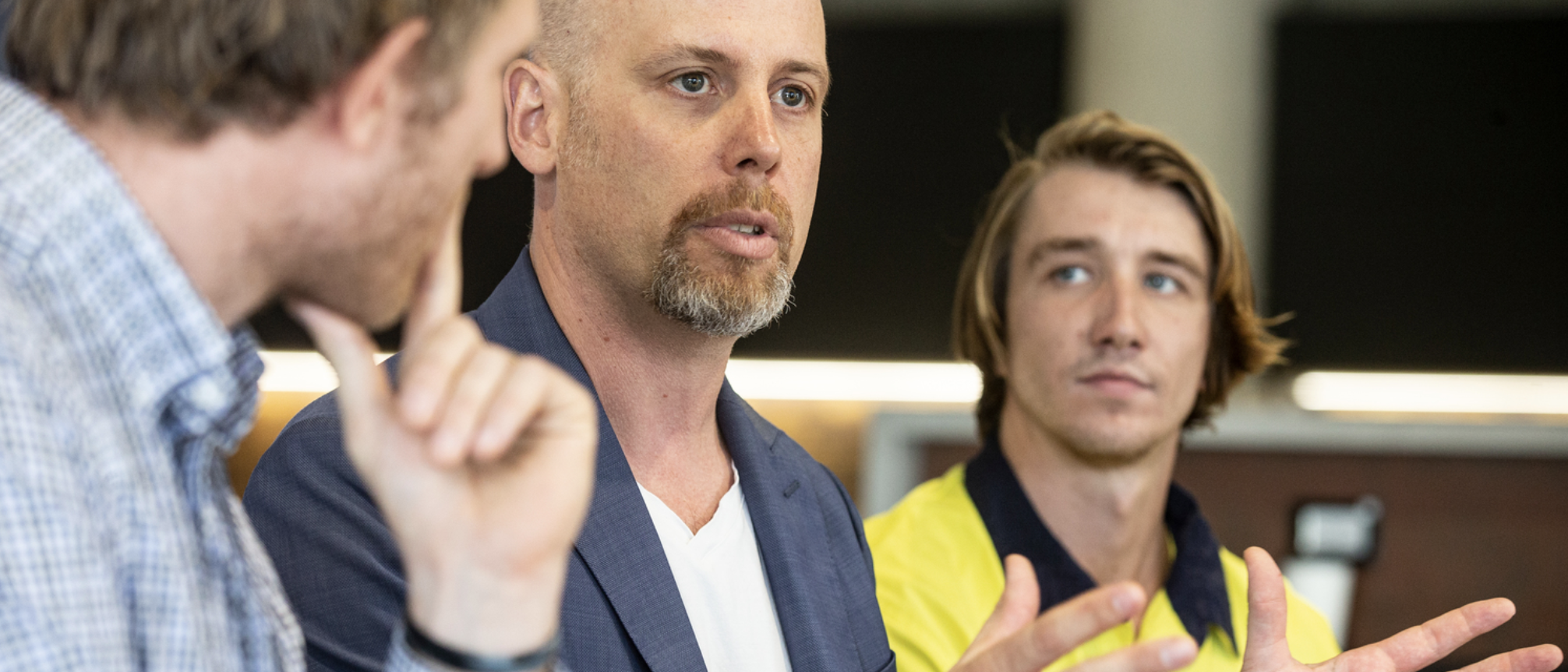July 26, 2021
UOW Makerspace Monthly Maker: Dr Tillmann Boehme
How the UOW Makerspace helped Tillmann Boehme integrate 3D printing into local business’s operations.
UOW researcher Dr Tillmann Boehme in partnership with his PhD student Dr Brogan Ryland returned from a research exchange to the UK investigating the adoption and impact of 3D printing on company performance.
The researchers felt frustrated when local businesses did not show a lot of interest in their 3D printing case insights from the UK and its value, however, the UOW Makerspace facility located at the Innovation Campus, enabled innovation in business engagement using an experimental learning approach.
Dr Tillmann Boehme grew up in the small village of Porta Westfalica in Germany and came to Australia via New Zealand. Tillmann holds a PhD in Supply Chain Management, a Master of Business Administration, and a German Diplom.
Tillmann’s relationship with the UOW Makerspace at the Innovation Campus stretches back quite some time ago.
“It was some six years ago with Professor Geoff Spinks, Geoff and I as part of an interdisciplinary research team were working on the white paper for the Makerspace when we got a UOW Global Challenges research grant to investigate 3D printing in the Illawarra.”
“The result was a white paper which also lead and developed a pathway for the Makerspace to get established.”
Tillmann’s goal is to encourage local businesses to familiarise themselves with the technology in places such as the Makerspace and understand the technical aspects, and its potential impacting businesses.
This helps operating in a novel and innovative environment and helps to develop ideas and convert their ideas into realities.
“I’ve got a little research grant with AusIndustry to spend time with local manufacturers and get to know the people, the processes, their business models, their workshops and how they currently operate in context.”
“I then take them through an onboarding process at Innovation Campus including TRICEP (Translational Research Initiative for Cell Engineering and Printing) to showcase the latest high-end commercial 3D printing equipment as part of the ANFF material node.”
UK business models, their 3D printing adoption pathway, and its impact businesses is then showcased to the local manufacturers.
The Makerspace is then used for companies to think about innovative products, ideas, or services.
“I’m basically trying to help translate and bridge 3D printing knowledge and make it relevant to specific companies in their context.”, he said.
Frustration was the main motivation for Tillmann having been to the United Kingdom and seeing SMEs innovative business models using 3D printing, to only come back to the Illawarra where companies struggled to understand the relevance of 3D printing to their business.
Tillmann then needed to take a more proactive approach to translate that technology into businesses’ supply chain context.
“We were successful with the majority of our first intake of our local companies. These companies are not focusing only on rapid prototyping or spare part production, more importantly they are focusing on how they can use 3D printing for tooling within their traditional manufacturing processes.”
“It’s not just about prototyping, and it’s not just about printing parts, components or spare parts. It’s identifying the most meaningful application and the context in that they are operating in.
“Ideally you can adopt 3D printing so you can positively impact your value proposition to your customer base/new customer development.”
Tillmann enjoys having the engineering know-how of the Makerspace complement his expertise in supply chain management and business model design.
Tillmann learnt a range of skills in the Makerspace such as 3D printing and its technical limitations and to operate the laser-cutter, which he used to create a gift for his daughter.
Tillmann believes the UOW Makerspace has a lot of untapped potential translating STEM knowledge into our local society and believes the trump card to success is not the space or the technology, it is the people.
"It’s never about the tools, it’s always about the people, I like the Makerspace team, our Future Makers multi-disciplinary team and the positive attitude they all bring to the table.”
